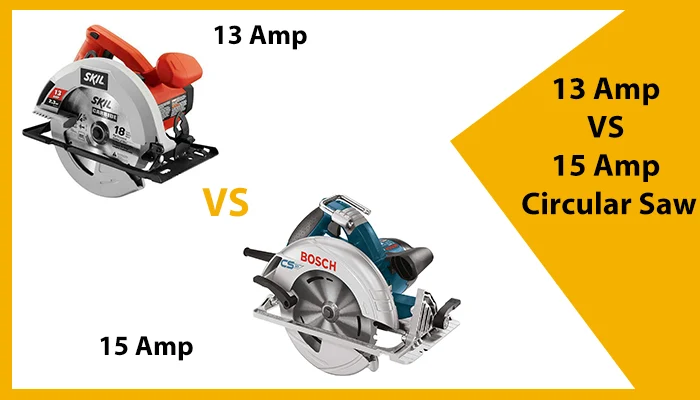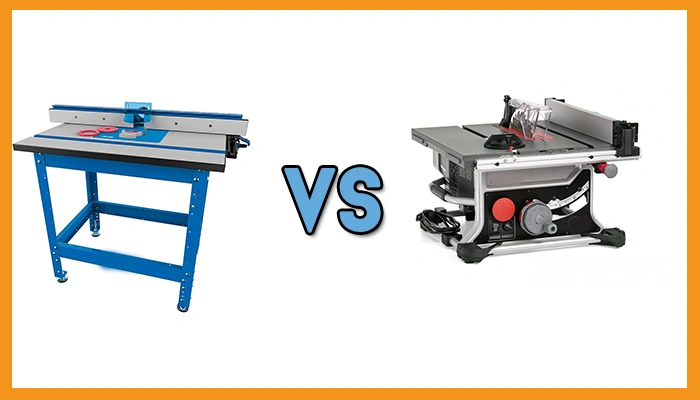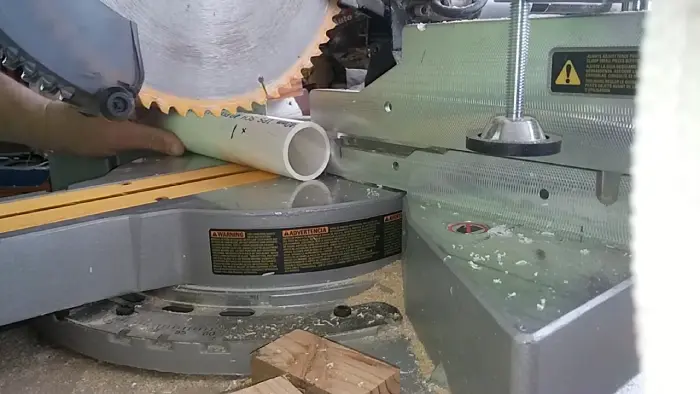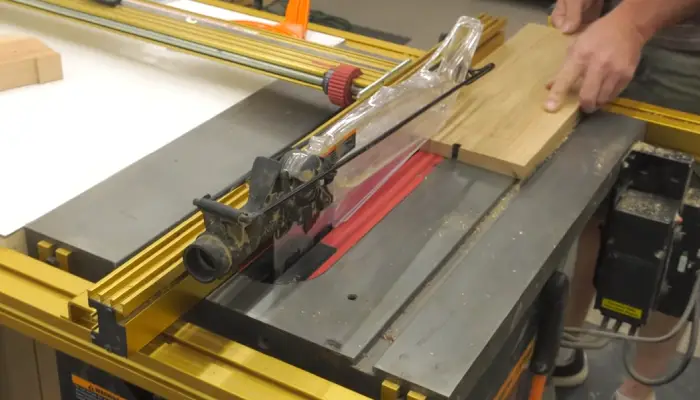13 Amp vs 15 Amp Circular Saw: 6 Differences
Circular saws are one of the most widely used power tools in woodworking that comes with different amp ratings. It is common to find circular saws with 13 amps and 15 amps on the market. A woodworker needs to understand the key differences between a 13 amp and a 15 amp circular saw.
According to my findings, the main difference between the 13 amp vs 15 amp circular saw is the amount of power they generate. A 15 amp circular saw is generally more powerful than a 13 amp saw, and it’s able to handle tougher cutting tasks with ease.
I will discuss all the distinctions between a 13 amp and a 15 amp circular saw so that you can determine which one is suitable for your woodworking needs.
- Lightweight and Powerful Design
- Laser-Guided Precision Cutting
- Effortless Blade Changes with Spindle Lock
- Versatile Bevel Adjustment up to 45°
- Corded for Unlimited Runtime
- Lightweight and Powerful Design
- Laser Guide for Precision Cuts
- Bevel Adjustment up to 45°
- Effortless Blade Changes with Spindle Lock
- Corded for Unlimited Runtime
6 Differences Between 13 Amp and 15 Amp Circular Saw

The 13 Amp and 15 Amp Circular Saws differ in many aspects, and below, I’ll explore all the differences that can affect your woodworking experience.
- Power Rating
- Initial Current Surge
- Usage Scenario
- Cutting Speed
- Weight and Portability
- Price
1. Power Rating
A 13 amp and 15 amp circular saw differ in their power rating based on the motor capabilities and cutting efficiency of the saws.
Circular saws with 13-amp motors are capable of handling standard woodworking tasks. It can easily cut through various materials, but it might struggle with extremely thick or dense stock.
On the other hand, a 15 amp circular saw offers a notable increase in power, providing a 15% boost compared to the 13 amp version.
This extra power is particularly valuable when cutting through thick stock hardwood or even when dealing with demanding tasks such as cutting thick beams or concrete. The 15 amp saw excels in heavy-duty applications, making it a better choice for these challenging scenarios.
2. Initial Current Surge
Experiencing an initial current surge is a common occurrence when using both a 13 amp and 15 amp circular saw. However, there are differences in the magnitude of this surge between the two types of saws, which can notably impact the electrical system of the saw and its compatibility with different circuits.
With a 13 amp circular saw, the initial current surge is relatively low. While it may cause a momentary increase in electrical demand, it’s unlikely to affect the circuit significantly. This makes a 13 amp saw suitable for use in residential settings without the risk of tripping circuit breakers or causing excessive wire temperatures.
Conversely, a 15 amp circular saw is likely to have a higher initial current surge. This higher surge can lead to increased wire temperatures and has the potential to trip circuit breakers, particularly in residential settings with lower-capacity circuits.
3. Usage Scenario
A 13 amp circular saw is suitable for everyday DIY and woodworking tasks. It can handle common materials like 2x4s or 2x6s without much trouble. If you’re a casual or occasional user, a 13 amp saw is a cost-effective choice.
In contrast, a 15 amp circular saw excels in more demanding situations. If you frequently work with heavy-duty materials like rafters, joists, or dense hardwoods, the extra power of a 15 amp saw can significantly improve your efficiency. They’re better suited for continuous, intensive use.
Therefore, your choice of saw should be based on the type of projects you undertake and the materials you typically work with.
4. Cutting Speed
When using a 15 amp circular saw, you’ll notice a significant difference in cutting speed compared to a 13 amp saw.
The blade speed of a 15 amp circular saw ranges from 5,200 to 5,800 RPM, which is slightly higher than that of a 13 amp saw. This higher blade speed allows the 15 amp saw to cut through materials more quickly and efficiently.
Despite cutting dense materials, the blade in the 15 amp saw maintains a consistent speed. As a result, you can expect smoother and quicker cuts with the 15 amp circular saw.
5. Weight and Portability
Carrying and maneuvering a 13 amp circular saw is generally easier due to its lightweight design. These saws typically weigh between 6.95 and 8.2 pounds, making them highly portable.
The reduced weight allows for greater maneuverability, especially when working for extended periods or in tight spaces.
On the other hand, 15 amp circular saws may be slightly heavier, weighing between 7.35 and 9.5 pounds. While they offer more power, this added power comes at the expense of portability.
The increased weight can make them less convenient for users who prioritize mobility. It’s also important to store your circular saw in a dry and secure location to protect it from environmental factors and ensure its longevity.
6. Price
To determine the price difference between a 13 amp and 15 amp circular saw, you can compare the cost of each tool. 13 amp circular saws are generally more affordable, with prices starting around $40.
In contrast, 15 amp circular saws, which offer increased power and capabilities, are typically priced higher. Brands and models can vary in price. For example, a 15 amp saw can range from $47 for a used-very good condition saw to $75 for a brand new one.
13 Amp and 15 Amp Circular Saw Comparison Chart
| Aspects | 13 Amp Circular Saw | 15 Amp Circular Saw |
| Power Rating | 13-amp motor for standard tasks; struggles with dense materials | 15% more power, excels in cutting through thick or hardwoods |
| Initial Current Surge | Moderate surge, potential impact on circuit | Higher surge, may lead to increased wire temperatures and circuit tripping |
| Usage Scenario | Cost-effective for everyday DIY; suitable for common materials | Better for heavy-duty tasks and frequent, intensive use |
| Cutting Speed | Blade speed 5,300-5,500 RPM; adequate for most tasks | Blade speed 5,200-5,800 RPM; consistent speed in dense materials |
| Weight and Portability | Lightweight (6.95-8.2 lbs); highly portable | Slightly heavier (7.35-9.5 lbs); less convenient for portability |
What is the typical blade size for 13-amp and 15-amp circular saws?
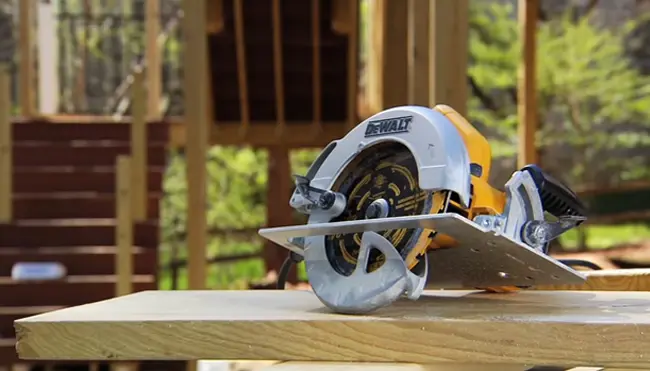
For both 13-amp and 15-amp circular saws, the typical blade size is 7 1/4 inches. This size is considered standard and is commonly used in various cutting tasks, such as woodworking and construction projects.
A 7-1/4-inch blade offers a good balance between cutting depth and maneuverability, making it a practical choice for both 13 and 15-amp circular saws. For optimal cutting results, you need to pair your saw with a good-quality circular saw blade.
It’s important to note that this blade size comes with most circular saws in these amp ranges, allowing you to make deeper cuts with circular saws.
With a 7-1/4-inch blade, you can achieve accurate and efficient cuts, allowing you to complete your projects effectively.
Can a 13-amp circular saw be upgraded to 15 amps?
Upgrading a 13-amp circular saw to 15 amps is generally not a practical option. The amperage of a circular saw is primarily determined by its motor, and upgrading it would typically require replacing the entire motor assembly, which can be complex and costly.
It’s often more cost-effective to purchase a new circular saw with a 15-amp motor if you require additional power for your projects.
Additionally, attempting such an upgrade may void any existing warranties on the saw and, in extreme cases, cause a fire, so it’s important to consider the trade-offs and benefits before making such a decision.
Choose Between 13-Amp and 15-Amp Circular Saws According to Your Woodworking Needs
I hope you now have a clear understanding of the significant differences between 13-amp and 15-amp circular saws and how these distinctions can impact your woodworking projects.
If you need a versatile tool for standard woodworking or occasional DIY tasks, a 13-amp circular saw can serve you well while keeping costs in check. However, if your work involves heavy-duty materials and requires efficient and powerful cutting, the 15-amp saw is the way to go.
Consider factors like electrical compatibility, initial current surge, and price when making your choice. Whichever you choose, both saws offer the potential for precise, quality cuts that will enhance your woodworking experience.
- Powerful 13-amp motor for fast cutting.
- Spindle lock for easy blade changes.
- Bevel adjustment from 0-45 degrees.
- Cutting depth adjustment for precision cuts.
- Included 24T carbide blade and rip guide.
- High-performance 15 Amp Motor
- 55° Bevel Capacity for Versatility
- Durable Magnesium Shoe
- Metal Upper and Lower Guard
- Convenient Spindle Lock Mechanism
Last update on 2025-07-18 / Affiliate links / Images from Amazon Product Advertising API

